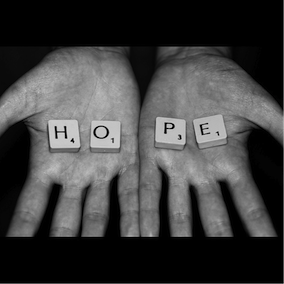*The Spatial Election*
More than anything, this election seemed to be about space. A black man occupied the White House for two terms, and now a white woman has a serious chance of doing the same. Should it be surprising that The Donald won the Republican nomination? If a Negro or a Broad can rule the empire, surely a Wealthy White Man by virtue of his colonial legacy can too—personal background be damned. The rebellion might have achieved a minor progressive parade, but now The Empire Strikes Back. With no actual applicable experience to cite for his fifty-state job interview, Trump made it about space. The Oval Office is obviously too easy to obtain, and this corruption bores into every facet of the American Experience. It’s too easy for Mexicans to enter our climate-changed deserts, and so we need a goddamn wall to uppercut them back. It’s too easy for Syrian refugees to wait two years as they toss tarnished souls into a bureaucratic penny fountain, and so we need to outlaw Islam just to be safe. A matronly diplomat is within reach of Pennsylvania Avenue? She needs to be relocated to a prison with other nasty women. Law & Order, Law & Order, Law & Order. We are a country without laws if a white man’s ass is not on the throne. This order has been disrupted by these imposters, these Others.
Donald never led in general election polls, and so he countered published statistics with observations of space. Look at this rally! Look at all these people! Look at how much space is occupied when I come to your town. Obviously this means peer-reviewed, published information must be wrong. The economy is good? I say it’s bad and watch the trash people flock. A non-white participant protests my crude language? Throw ’em out! Punch ’em! Remove ’em! Look at how a cultural critic has been ejected from my space, by virtue of my finger jabbing in their direction! I command this space for you, my frothing mass, my white bread yeast. The restoration of space has begun!
Women from his past began to come forward to share their stories of how Trump invaded their space. Beauty contestants recalled how he’d barge into their dressing rooms unannounced, reporters and associates were fondled without consent, and his magpie lips stole off-camera kisses. Trump responded with charges that the women were not attractive and, therefore, held space that was not valuable enough for him to occupy. He only invades the best space. The most luxurious space.
The second debate became the space apex. Trump’s campaign was spiraling down a long hollow shaft, à la the Emperor in Return of the Jedi, and so came the space attack. He invited Slick Willy’s former victims for a balcony cameo to unsettle the wife who was cheated on. Instead of allowing Hillary to command the floor during her answers, he loomed over her as much as he could get away with. This crone might be allowed on stage, but I will relinquish only so much of it. The Trump surrogates all cheered after about how “rattled” she seemed and that she was on the “defensive.” He might lose and lose badly, but he stole as much space as he could in the election’s final moments.
*Persona*
Over the spring of 2016 I played the game Persona 4. I had never played any of the Persona games previously, and, in fact, my love of Role Playing Games has dwindled a bit as I’ve come into my own as an adult. Role Playing Games are the ultimate adventure fantasy for young adults, and so it shouldn’t be surprising that protagonists are almost always men in their early adolescence.
In Persona 4, you play a young man from Tokyo who moves to the suburbs to live with his uncle and young cousin. The main storyline of the game involves a series of unsolved murders that occupy your detective uncle late into the night. You discover that someone is kidnapping the town’s denizens and imprisoning them inside a television world. You and your new friends can enter this television world and summon demons to destroy surreal monsters, making the game feel like an interactive Haruki Murakami novel.
You eventually discover that Mitsuo, an awkward, socially rejected transfer student has taken part in the murder spree. He disappears into the television world and when you confront him, he turns out to be a levitating infant hiding inside a skyscraper-sized knight. He says in a broken vocoder monotone, “I am…a shadow…Come…I’ll end your emptiness.” When he attacks your party, you see yourself from his perspective as he selects different options from a video game menu. He assumes that he is doing you a favor by destroying you because he is nothing more than a hollow baby raging against a culture that rejects him and, therefore, assumes everyone must feel the same way. If you are able to demolish his knight’s outer shell, he quickly recites gibberish language to conjure its return, rather than communicate with you directly.
Persona 4 thus critiques the traditional Role Playing Game tropes of using the genre to project a power fantasy. This need comes from feeling like an entitled infant as young men begin constructing their own masculinity. These games force you to use your maturing power to assist the weak and save humanity from its darker impulses, teaching young men that power requires a structural outlet if it’s to be wielded correctly.
The supernatural evil in Persona 4 is a desire to lash out indiscriminately at a culture that dares downplay your strength, and the game ultimately makes the argument that resentful men would end the planet if they could. The character of Mitsuo also demonstrates that a root cause for craving news coverage is a total lack of empathy for actual human beings. It’s also got a toe-tapping, J-Pop soundtrack.
*Karaoke*
Nothing depresses me more than a great singer in a karaoke bar. Karaoke is for below-average vocalists belting out nostalgia hits. But when a customer perfectly replicates Whitney Houston or Mariah Carey in some drafty dive, I just feel sad. Here is someone with a legitimate gift, and the only time that gift gets exercised is on Saturday nights between rounds of Jack. Why can’t the wealthiest empire in human history do more with its talented citizens? I’m more impressed with music than capital markets.
One Christmas at Shenanigans in Brooklyn, a non-regular took the microphone and requested Luciano Pavarotti. What came forth through the crackling speakers was the most powerful voice I’d ever heard. All conversations disintegrated as he rattled old-fashioned glasses with the finale of “O Sole Mio.” The bartenders held their phones aloft so that their wives could experience his human spirit reverberate. The applause went on for minutes. He thanked everyone and said he performs at the Met and desired a night of fun.
I had to follow him. Luckily, it was the pub singalong favorite of “Fairytale of New York.” I can’t sing particularly well, but I do come from a long line of Scottish drinkers, so I can do a mean Shane MacGowan. The Met Singer clapped and whistled as I slurred the opening bars.
I’ve always thought of “Fairytale of New York” as one of our more patriotic songs. It describes the wonder of the American Christmas: the season when a little too much neighborly booze and reconciliation is welcome. It only makes sense that it’s scheduled for a month after elections.
*The Secret of the Ooze*
The day my sister got married was the only day I didn’t have anxiety over this election. It took place in our hometown of Auburn, New York, a colossal paradox for a city of only thirty thousand. Home of William H. Seward, abolitionist. Home of Harriet Tubman, Underground Railroad Captain and Twenty-Dollar Bill Cover Girl. Home of Auburn Correctional Facility AKA Auburn Prison AKA Auburn Penal Colony. You see the cognitive dissonance embedded in the city’s neural pathways. Auburn’s brain is a dark storm of crows striking lifeless trees in feathery Vs throughout its black winters—a democratic Siberia.
My neighborhood growing up was filled with nobodies going nowhere good. There was the drug dealer across the street, the Baptist family that locked their daughters indoors during Halloween, and a whole lot of screaming domestic disputes fueled by the local brewery. Most people either worked for the prison or were incarcerated by it.
As I rose through the ranks of academia, the more my origin story made little sense to me, and, therefore, I wouldn’t acknowledge it. My writing gets published by Ivy League Universities! I’ve been invited to give readings at literature conferences! Facts like these made me want to workshop my past. “I really like how this speaker is driven and goal-oriented, but does he have to come from an upstate prison town where overdoses are prevalent? Neither of his parents is creative, so where does the writing gene come from? That’s not fully explained. Why not an artistic family from Chelsea? That seems more consistent with how the story unfolds.”
In Ninja Turtles II, Donatello discovers that they mutated into anthropomorphic reptiles from an ecological disaster and cover-up by a company called Techno Global Research Industries. It’s by far the most interesting part of an otherwise stupid movie. While other superheroes have elaborate origin stories that conveniently require feature-length films to narrate, the Ninja Turtles were simply created from capitalism’s exploitation of the natural world. The side effects of the company’s malfeasance were amazing physical specimens who lived in sewers and honed their skills to better a world that never wished them to surface. Although the film was panned for its lukewarm action and Vanilla Ice lyrics, their genesis gave hope to all the misfits out there. Unregulated capitalism created these weirdos and then did nothing to help them succeed, but, through sheer determination, the Ninja Turtles were able to succeed on their own terms. If a mutant sewer turtle can become a grandmaster in martial arts, surely a white trash kid can become a grandmaster in language.
*I Heart Huckabees*
I love the way Mike Huckabee’s jowls slide left to right when he speaks like a fleshy typewriter scripting bullshit. I love the way he considers himself a Christian and supports an honorable man of the cloth such as Donald J. Trump. I love how he compares Hillary Clinton to Jaws. I love how sharks are always the villains in movies when the human characters go out to sea. If anything, Mike Huckabee should support Jaws as he stands his ground against an alien assault.
I also love his daughter Sarah. When she speaks, I love that it isn’t just the usual bullshit like her father. It’s the terrifying chemical manure that infects the tributaries and waterfalls that surround her home state of Satan’s drab crater.
I love how when her daughters ask her what she does for a living, she says, “What does Proverbs 6:16 say again, girls?” Then to the tune of “Wheels on the Bus,” her darling offspring answer in song. “There are six things that the Lord dislikes, / seven that are abomination / to him: haughty eyes, a lying tongue, / and hands that shed innocent blood, / a heart that devises wicked plans, / feet that make haste to run / to evil, a false witness who breathes out lies, / and one who sows discord among brothers.”
That’s right, girls! Mommy is responsible for dropping baby Jesus. Maybe someday, you’ll defy his guidelines for redemption! Money Changers always need Spin Doctors to hypnotize the flock! That’s what the Gospel writes in holy fine print!
*The Goldberg Myth*
During Bill Clinton’s presidency, there was a popular wrestler named Bill Goldberg. He wasn’t much of a wrestler, as his matches rarely lasted for more than a minute. But the major component of the Goldberg act was his entrance. His music consisted of a martial drum pattern while a menacing melody ricocheted between beats. Then the chants began. “Goooooooold-berg!” The audience would repeat this chant for several minutes before he even came out to the arena. For several minutes it was only drums, melody, chants. This spectacle created a rhythmic, hypnotic sound that made it seem as if tens of thousands of young men could conjure a demon if only they were loud enough, a kind of rock concert Bloody Mary.
The audience’s patience was then rewarded with the monster Goldberg. At six feet four and a muscular two ninety, liquid dripping from shredded abdominals, Goldberg looked like a gladiator surfaced from the depths of Styx. Flanked by a security escort on all sides, the message was clear: this is no mere athlete, but a lethal predator who requires handling by the State until released into the safe confines of a wrestling ring. The State knew that inequalities exist, and this was its answer to satiate proletariat bloodlust.
A tornado of fireworks and pyrotechnics was then released from the ground, and Goldberg slipped within its curtain of lightning. As he withstood the fury of pyro, it gave a visual effect of buzz saws trimming his goatee, only to be repelled from his face as loose sparks. Working-class machines, which require a novella of safety guidelines on the factory floor, can only rattle and skip across Goldberg’s chiseled jaw.
When the pyro subsided, there stood Goldberg, unfazed. When the next set of drums looped around, he would then exhale the pyro exhaust like a hero of draconic lineage. The chants now exploded into a monster truck rally. The Gladiator’s entrance was nearly complete, and the crowd would not allow it to fall short now. As the noise rumbled the cameras, Goldberg roared, shadowboxed, and snorted before stepping through the ropes. The music ended, but the chants continued. Sixty seconds later, his opponent was extinguished, so the music returned, and the chants grew louder until Goldberg finally marched into the backstage area with another recorded win.
The company who employed Goldberg, World Championship Wrestling, did not have any fundamental insights into the character and, therefore, ruined The Myth beyond repair. The audience didn’t care that he knew maybe five moves or that he was incapable of a technical clinic. Goldberg represented an American masculinity lost in the era of global trade. He never lost. He rarely spoke. His entire act was the entrance and the destruction. You witnessed the twilight of his victims’ lives: their value and meaning reduced to a lifeless tackling dummy.
Goldberg beat up mostly nobodies. But that was the whole point. His opponents represented for the audience all of their real world frustrations—dead-end jobs, layoffs, corporate bankers, declining health benefits, unpaid loans. If we all link our voices together in the name of Goldberg, the supernatural realm will have no choice but to offer up The Myth to avenge economic forces that cannot be corralled.
Then Goldberg lost. He lost by getting tased. Not only was the Goldberg Myth exposed as illusion, but also by a weapon of the State. The Goldberg Myth immediately took on a new meaning: even otherworldly monsters cannot survive the State’s power. He had been allowed to disrupt the system for too long and needed to be humbled into subservience. Soon after, people began booing Goldberg. His very presence reminded them of their own mortality and economic position. Today, the Goldberg chant is one of mockery by wrestling fans. It is directed at combatants who are perceived as puppets of upper management. The Goldberg Myth will never be duplicated, but those seeking votes can still replicate its intoxicating power.
*And When You’re a Star, They Let You Do It*
Like put politicians on blast. I’ll origami a thesaurus scimitar and swipe away white spots from Donald’s tangerine smears, filet his face so he resembles Freddie Kruger after several horror dreams. This isn’t the fight you wanted, old man, but you’re staring down the Poetry Sith Lord fused with Sayian DNA, and there you sit, sad, blowing on your alphabet soup. Got nothing to say? I just Force Lightning’d your toupee with sentences conducted by my fingertips. Fine. Tag in Kellyanne. I was just getting warmed up anyway. Come at me with your Jersey nonsense, free shot at the chin. Oops, wiffed again. Well, allow me to counterstrike the best I can by summoning his assault victims reborn as sorceresses, led by Summer Zervos. They cast Ballot Upheaval, zooming Don & Con, lips first, to Polaris, smooching electrical skin before its detonation.
*The Revenge of the Sith*
Let me make something clear: if you voted for Donald J. Trump, I will never forgive you. Politicians always speak of forgiving rhetoric after elections conclude. We are all Americans. We need to come together to face mutual challenges. We have more in common than we think. Yeah, fuck that. Voting for Trump means you desire to smash democracy into a thousand orange Tic Tacs. Garry Wills described the act of voting for Trump as “acting alone through him.” Well, I’m here to grant your wish. You are now alone and, statistically, near death. Sayonara.
I want to shred the whiteness from my skin. I want nothing to do with an America who would rather elect a sexist reality star than the world’s most qualified woman. I find myself at a crossroads. I’ve always hated Yoda because I thought he was a coward and a loser for what he did in Episode III (Revenge of the Sith). An illiterate galaxy elects the Emperor, and Yoda exiles himself to some swamp planet to dick around until Luke arrives twenty years later. I now understand him a bit more. This country’s Force Users are now the hunted. The Republican Party swept all three branches of government by the uneducated garbage that is strewn about the empire’s hinterlands. What incentive does the GOP have to expand education now?
I definitely will not move to another country, but now, my brain begins its self-imposed Yoda Exile from all forms of news and social media. I will only study scholarship and poetry for the time being. An orange shadow has fallen upon our nation’s rainbow coalition. But there will be a new hope.
As the election returns came in that November Night, I sobbed uncontrollably in frenetic heaves. How could I face my female students the next day? How can I promise them a bright future if they follow the rules but say nothing when the rules get violated? I had an afternoon appointment with my creative writing honors student, and I began to cry again. That’s when I realized that even if my brain will enter the Yoda Exile, my heart remains here, fighting.
The first academic award I ever received was in preschool for “Most Caring.” It’s a distinction that I’ve spent the rest of my life running away from because I feared it interfered with my natural ambition. This left me conflicted while watching Star Wars because although I admired the wisdom and thoughtfulness of Obi-Wan Kenobi, it’s the Dark Side Users whom I always felt more of an affinity for. Rather than conform to the Jedi Order’s institutionalized version of a Force User, the Sith mold the Force for their own purposes. While the Jedi live and work in a lush, fragrant campus, the Sith often emerge from the galaxy’s shadow lands, obsessed with acquiring the power they were denied from birth. As I read and read and read, I felt the knowledge flow from my brain down to my hands, tingling my fingertips, twitching for an academic battle. Reading became an addiction because of the dark energy it supplied my ego.
I am back into the light. The ultimate privilege of teaching isn’t having summers off (although I do enjoy that), but knowing my students will outlive me. Sure, my writing will also outlive me, and maybe someone will read one of my poems after I move on from this world, but it’s my former students who make this world a better place to inhabit. During the meeting with my creative writing student, I realized that my true power is the ability to foster empathetic writers and thinkers. Her rough draft featured great insights into the human condition, and, like many of my students, she is a much more sophisticated thinker than I was at her age. My Most Caring Heart has been awakened to shield my female and minority students from the ugliness creeping into American political life so that they can cultivate their gifts in peace. It’s through them that I will help save this country. Head, Heart: let’s get to work.
##





